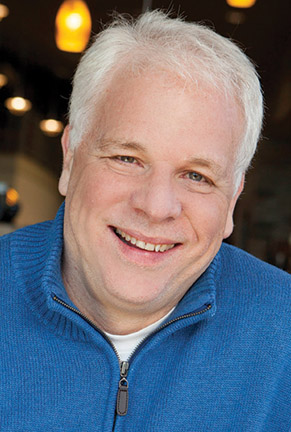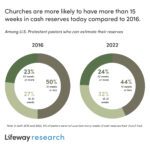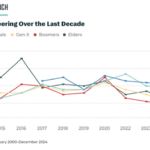 [1]
[1]
Editor’s note: The following is an adapted excerpt from the book “Preaching in a Post-Truth World.”
I’ve given up trying to determine if a sermon is good or not. There have been too many days when I’ve ended the sermon thinking that was the best sermon I’ve ever preached, only to hear nothing back from the congregation. Other days, I’ve ended the sermon and thought it was the worst sermon I had ever preached only to be overwhelmed by responses by people who heard the sermon and in some clumsy moment of my presentation, the Holy Spirit used a word or even a syllable to change their lives. I’ve finally come to the point where I show up, do the best I can, and trust the Spirit with the rest.
We should be grateful for this. After all, there are a lot more bad sermons than good ones.
I remember my first sermon. It was awful. I had just told my little home church I felt called to the ministry and the membership, most of whom I had known all my short life, rallied around me to confirm God’s hand on my life. They, unknown to me, had recognized God’s calling on my life long before I did. In those days, going into the ministry meant you were going to be a preacher. There was no understanding of going into counseling or student work. If you were called, you were going to preach. Some would become missionaries, but everyone was going to be a preacher.
So, if you were going to preach, you might as well get started. I was scheduled to preach on a Sunday night in about two weeks. No one told me about how to write a sermon or how I needed to structure my sermon. No one told me about the importance of an attention-grabbing introduction. No one told me how to craft the sermon, how one point should be connected to the next point, and how the sermon should conclude with a strong call to action. No one told me anything except to just get up there and preach.
And I didn’t ask. I was called to preach and if I was called to preach, I shouldn’t have to worry about what I would say when I stood up in front of my church. Jesus promised that to his followers. It was right there in the Bible. The night came and, wearing my best suit, I stood up to preach. Whatever inspiration I was supposed to feel never showed up. Whatever emotional conviction was supposed to well up in me to preach a sermon that would change the world never came. I preached for about 5 minutes and then prayed as I concluded. I didn’t actually conclude anything. I just ran out of things to say, and I stopped. Praying was the only thing I knew to do to make the evening stop. I was so humiliated and embarrassed I didn’t preach again for years. But my home church never gave up on me. God bless little churches that will happily sit through some of the worst sermons ever preached and still love the preacher anyway.
Every preacher harbors the secret fantasy that preaching must have been easier to do at some other time. There must have been a time when congregations were more open and eager to hear the Word. There had to be moments when a community would gather in prayerful anticipation of what the preacher would have to say. When people would hang on to every word that flowed from the preacher’s mouth. We read about preachers in the First Great Awakening preaching sermons that lasted for over two hours, and we marvel at what that must have been like. That was also before the internet and all the other modern inventions of distraction. People didn’t have much else to do except go to church. There were just as many social reasons for attending church as there were spiritual reasons.
The fact is preaching has always been hard. People have fickle attention spans. Sometimes, people are difficult to read and therefore, it’s hard to gauge how to direct the sermon. Does the congregation have a theological background? If so, how deep is that background? Even if the congregation has a very shallow understanding of the Christian God, do they have a lot of other spiritual knowledge or just bad theology? How much of their thinking has to be deconstructed before a positive case for the Gospel can be built? All of this and much more has to be ascertained by the preacher before the first word is ever preached. Preaching has always been and continues to be a very difficult and complicated process.
So, for those who are graduating seminary or agreeing to become the part-time pastor of a nearby small church, relax. I know you’re feeling a lot of pressure about what you will say every Sunday. I want to remind you that it’s not about you. It’s not about me. It’s always about the Word and the Spirit and how the Spirit takes our sermons of a couple of fish and a few loaves to feed everyone in the room. Show up. Do your best and trust God with everything else.
Mike Glenn is president of The Engage Church Network, former senior pastor of Brentwood (Tenn.) Baptist Church and author of the forthcoming book “Preaching in a Post-Truth World [3]” from B&H Publishing.









